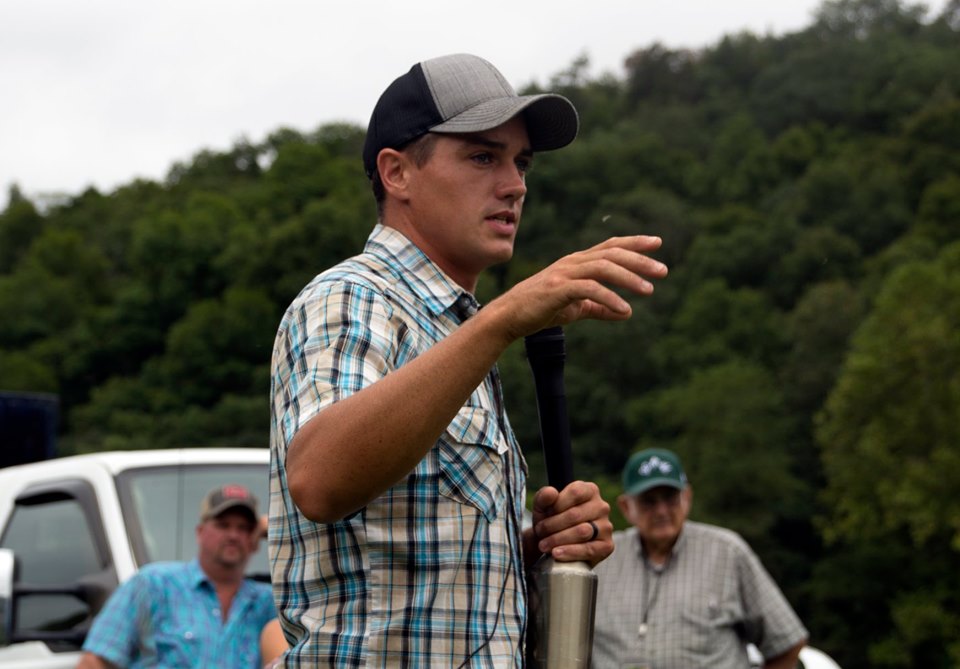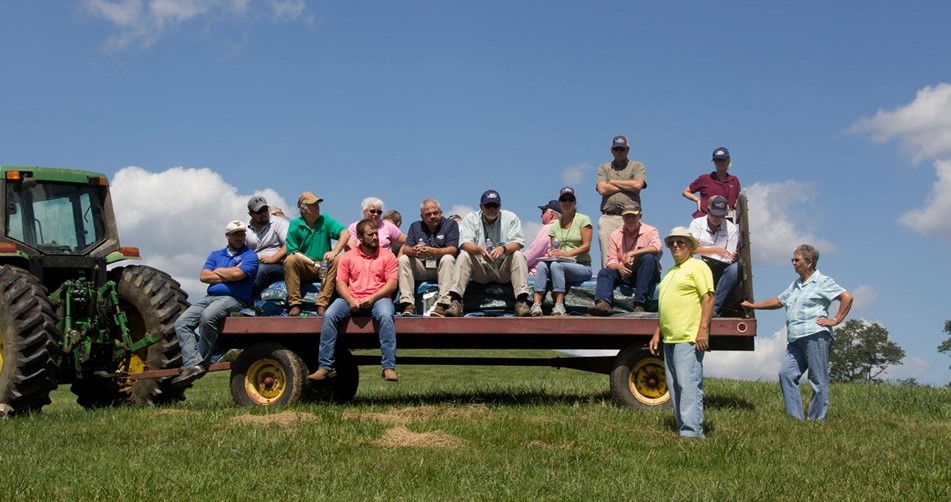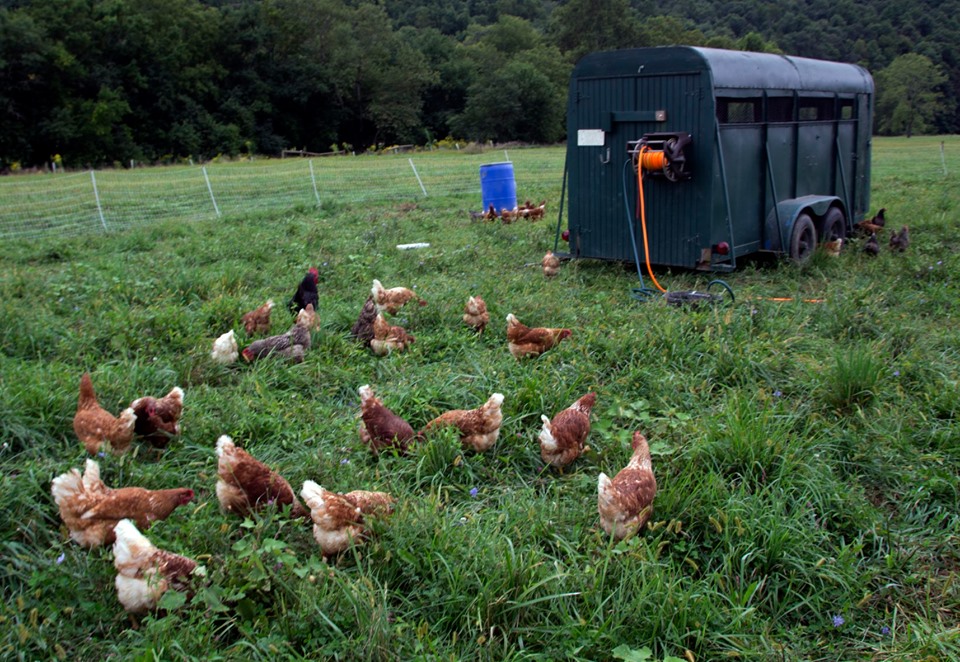Farmers Recognized for Efforts to Improve Water Quality
What do you get when you combine thick grasses, stream fencing, roaming chickens, and cattle rotating through pastures? You get cleaner water!
Our executive director, Angie Rosser, got to see first-hand how farmers are committed to improving water quality through their farming practices. She was appointed by the governor to join a team to judge finalists in the State Conservation Farm of the Year competition coordinated through the WV Conservation Agency. This year the judges traveled from Mineral County to Mason County to learn from the best of the best in conservation-based farming in West Virginia.
Lukas Newcomer, of Noble Farms, describes how adopting conservation practices has led to a more productive farm. Photo by the WV Conservation Agency.
The first stop was Noble Farms near Burlington, WV, where Lukas and Gabby Newcomer take an ecosystem-wide approach to raising pastured cows, chickens and hogs in the Potomac watershed. They rotate their cattle through pastures on a daily basis, keeping the grasses healthy and rich in nutrients while preventing bare spots that leave dirt to runoff into streams. Free-range chickens follow the cows scratching manure, providing for an effective “clean up” service for the pastures. They have installed fencing to keep the animals from entering and polluting Patterson Creek.
Just a few years into their enterprise, they look to the future of sustainable farming including adjusting to climate change and minimizing their own use of fossil fuels. And it’s working. They are selling out their products directly to customers who value their conservation approaches.
Judges touring the Hussell Farm in Mason County. Photo by the WV Conservation Agency.
The other finalist was not far from the Ohio River – the Hussell Farm near Point Pleasant, WV. Don and Alice Hussell took over the family farm with a new sense of purpose. Don explained he has a responsibility to act as a “steward” of his land, and the water that flows through it. One of the first things he did was fence out the grazing cattle from the streams and ponds on the farm. He installed alternative water sources so the cows get all they need while keeping streams clean. He uses natural practices to keep his grasses healthy and thriving. This provides a nutritious food source for his cows, while assuring there is groundcover to avoid soil erosion and runoff into streams.
Both of these farms stand out as winners.
Their goal is to see the water leaving their farm cleaner than when it entered. They also work to educate other farmers and students about what they’ve gained from their conservation practices. And they are proving that conservation pays – not just for preserving our water and soil resources, but also for decreasing their maintenance costs and increasing their productivity.
Chickens at Noble Farms providing pasture housekeeping services. Photo by the WV Conservation Agency.
“I’m inspired by these farmers who are charting the course for the future of sustainable agriculture in the Mountain State,” said Angie. “They understand how working with the natural systems and protecting water quality works for a healthy and profitable local food source.”
The winner of the 2019 Conservation Farm of the Year will be announced at the annual meeting of the Association of Conservation District supervisors in October.







